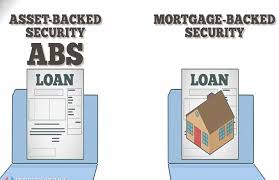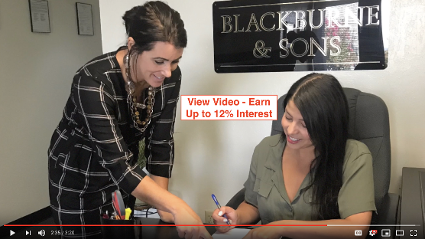 For the last forty years, hard money commercial lenders and their private investors have been making money hand-over-fist by making subprime and nonprime commercial loans.
For the last forty years, hard money commercial lenders and their private investors have been making money hand-over-fist by making subprime and nonprime commercial loans.
Both sub-prime and non-prime commercial loans share the same characteristic. The deal isn't quite good enough for a bank. At least one of the Three C's of Underwriting - capacity to repay, collateral, and credit - is weak.

What is the difference between a subprime commercial loan and a nonprime commercial loan? Here's an easy and fun way to remember it. A subprime commercial loan is loan to an axe murderer. A nonprime commercial loan is also a loan to an axe murderer, but the axe murderer has to first provide a bunch of paperwork. No-doc loans became taboo after the Great Recession.
But here's the thing about subprime commercial loans. In my lifetime, commercial real estate has crashed by 45% three times - once during the S&L Crisis, once during the Dot-Com Meltdown, and once during the Great Recession. And you know what? Even though the 65% LTV hard money loans in our portfolio suddenly became 120% LTV deals after the crash, the vast majority of our smaller deals kept making their monthly payments!
Wall Street has figured out a way to securitize nonprime commercial loans using asset-backed securities.

What is an Asset-Backed Security?
According to Investopedia, an asset-backed security (ABS) is a financial security collateralized by a pool of assets such as loans, leases, credit card debt, royalties or receivables - all kinds of different stuff. For investors, asset-backed securities are an alternative to investing in corporate debt. An ABS is similar to a mortgage-backed security, except that most of the underlying securities are not mortgage-based.
The basic concept behind the asset-backed security is that you investment is backed by lots of different types of collateral. A tax law change may crater commercial real estate estate values, like it did in 1986, but aircraft leases might keep purring along. An investor does not have all of his eggs in one basket.
Asset-backed securities allow lenders (more precisely, issuers) to generate more cash, which, in turn, is used for more lending, while giving investors the opportunity to invest in a wide variety of income-generating assets. Usually, the underlying assets of an ABS are illiquid and can't be sold on their own. However, pooling the assets together and creating a financial security, a process called securitization, enables the owner of the assets to make them marketable.

Real quick: Securitization is the process of taking a bunch of loans, sticking them into a giant pool, and then issuing little pieces of paper (securities) that say that the holder gets, say, 1/100,000th of any cash flow coming back to the pool.
The underlying assets of these pools may be home equity loans, automobile loans, credit card receivables, student loans, scratch-and-dent residential loans (deals that got kicked out of another securitization), subprime commercial loans, or other expected cash flows.
Issuers of ABS can be as creative as they desire. For example, asset-backed securities have been created based on cash flows from movie revenues, royalty payments, aircraft leases and solar photovoltaics. Just about any cash-producing situation can be securitized into an ABS.

Example of an Asset-Backed Security
Assume that Company X is in the business of making automobile loans. If a person wants to borrow money to buy a car, Company X gives that person the cash, and the person is obligated to repay the loan with a certain amount of interest. Perhaps Company X makes so many loans that it runs out of cash to continue making more loans. Company X can then package its current loans and sell them to Investment Firm X, thus receiving cash that it can use to make more loans.
Investment Firm X will then sort the purchased loans into different groups called tranches. These tranches are groups of loans with similar characteristics, such as maturity, interest rate and expected delinquency rate. Next, Investment Firm X will issue securities (bonds) that are similar to typical bonds on each tranche it creates.
Individual investors then purchase these securities and receive the cash-flows from the underlying pool of auto loans, minus an administrative fee that Investment Firm X keeps for itself.

An ABS will usually have three tranches: Class A, B and C. The senior tranche, A, is almost always the largest tranche and is structured to have an investment-grade rating to make it attractive to investors. An investment-grade rating is BBB or higher according to Standard & Poors. The reason this is important is because many trust documents forbid investments in any deal that is not investment grade.
The B tranche has lower credit quality and, thus, has a higher yield than the senior tranche. The C tranche has a lower credit rating than the B tranche and might have such poor credit quality that it can't be sold to investors. In this case, the issuer would keep the C tranche and absorb the losses.

Why Do We Care About Asset-Backed Securities?
Many of the commercial lenders making nonprime commercial loans today ultimately get their lending dough, not from deposits or from private investors like Blackburne & Sons, but rather by sprinkling their nonprime commercial loans into ABS pools.

Oooo. He was just kidding, and he apologizes.
Please put down that knife! Please, plea.... Uhhh :-)





















